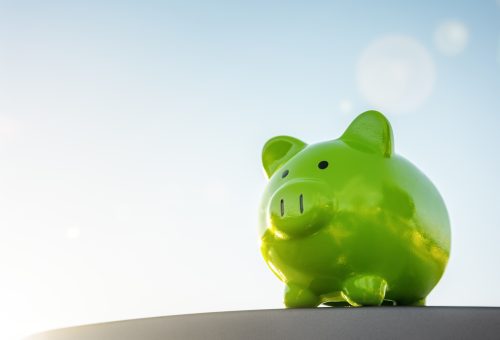Banking on the Environment

Save money and time by going green
Going “green” often means reducing carbon emissions, consuming less energy, or cleaning our water and air. There are steps you can take with your finances to go “green” that might save you time, money, and possibly reduce your carbon footprint.
Banking electronically
There are many ways to save yourself a trip to a bank branch.
- Sign up for electronic statements (eStatements). You can save a lot of trees by switching from paper copies, especially when inserts and envelopes are included. You can still download a digital copy of your statement to a secure location to have for your immediate access.
- Use electronic bill pay versus paper checks. Set them to pay automatically to take the hassle out of paying bills.
- Direct deposit your paycheck. You may receive your money faster and you will save a trip to the bank.
- Use mobile apps to deposit checks remotely. Ask your bank about mobile apps available. Visit the FDIC Consumer News Banking With Apps and the FDIC Consumer News Banking at the Speed of Technology issues for more information.
- Transfer funds online. If you need to transfer funds from one account to another, do it online so you don’t have to drive to your bank. Visit the FDIC Consumer News No Cash Payments? Now What? issue for more information on electronic payments.
- Set up account alerts. Alerts can be used for low balances to avoid overdrafts, and to keep track of your account activity, debit card usage, direct deposit notifications, password changes, or unusual activity. If you are looking for a specific alert, you may want to ask your bank if it is possible.
- Reconsider the way you bank. Visit the FDIC Consumer News Is Digital Banking for Me? to learn more about your digital options.
Safely recycle
Safely recycle your paperwork whenever possible, but be sure to destroy your financial information properly to maintain your financial privacy. Many communities sponsor secured shredding days. Check your local government’s website.
Keep your financial records based on retention requirements. For example, the Internal Revenue Service (IRS) offers suggestions on how long to keep tax returns based on your tax filing situation. Be sure to save your digital records in a safe place.
Cancel junk mail
We often think of high tech ways to steal a person’s information, but mail theft is still a concern. Thieves may target mailboxes looking for pre-approved credit cards and insurance offers. According to the Federal Trade Commission (FTC), you can opt out of some junk mail for five years or sometimes permanently. This can save you the inconvenience of dealing with credit card theft, and you may help save a few trees.
Use alternative travel
If you cannot conduct your banking online and your bank is a short distance from you, perhaps you can treat yourself to a walk or a bike ride. If you must drive, combine going to the bank with other errands to avoid making a single trip.
Buy less, save more
Perhaps you can find new ways to reuse items or borrow them, instead of buying new. You can put the money you were going to use to purchase the item in your savings account and help the environment at the same time.
These changes can save time and money, and make the world a little greener, too.
Interested in learning more?
Learn more "green" banking tips. Download our Banking on the Environment Guide.
For additional information, please visit fdic.gov/resources/consumers. You can also visit our Resource Center on pbofca.com or contact support@pbofca.com.
If you have any questions or need assistance regarding online banking or any of our products and services, please give us a call at (949) 732-4000 or (323) 556-6544, or email us at onlinebanking@pbofca.com.
Additional resources
FDIC Consumer News What to Do When Facing a Natural Disaster
FTC Opt Out - www.optoutprescreen.com or call 1-888-567-8688

